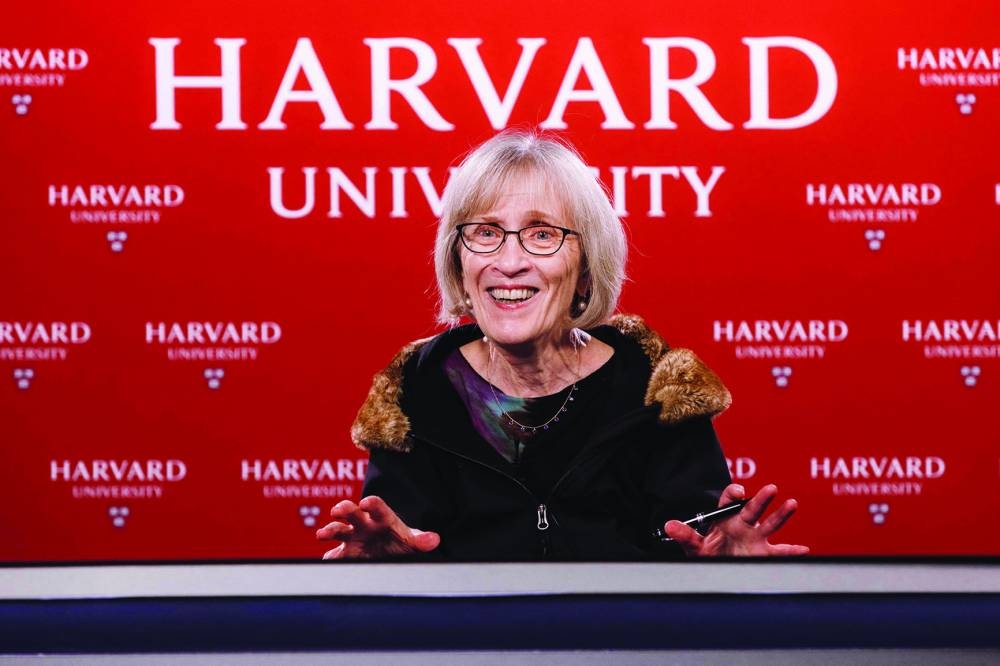The Nobel prize in economics was awarded yesterday to American economist Claudia Goldin for research that has helped bring understanding to the role of women in the labour market.
The 77-year-old Harvard professor, who is the third woman to be awarded the prestigious economics prize, was given the nod “for having advanced our understanding of women’s labour market outcomes”, the jury said.
The Nobel is a “very important prize, not just for me, but for the many people who work in this field and who are trying to understand why there is so much change, but there are still large differences” in pay, Goldin told AFP in a telephone interview after the announcement.
By studying the history of women in the United States workforce, Goldin demonstrated factors that have historically influenced, and in some cases still influence, the supply and demand for women in the labour force, the jury explained.
“She has demonstrated that the sources of the gender gap change over time,” Nobel committee member Randi Hjalmarsson told a press conference.
Hjalmarsson added that while Goldin had not studied policy, her work had provided an “underlying foundation” that had different policy implications around the world.
Globally, about 50% of women participate in the labour market compared to 80% of men, but women earn less and are less likely to reach the top of the career ladder, the prize committee noted.
The Nobel prize in economics has the fewest number of women laureates, with just two others since it was first awarded in 1969.
They were Elinor Ostrom in 2009 and Esther Duflo in 2019 – and Goldin is the first woman to receive the prize as the sole laureate.
At a campus press conference, Goldin welcomed the rising number of top female economists such as Cecilia Rouse and Claudia Olivetti.
However, she said economics still struggles to shake off misperceptions about the field.
Many young women students are turned off because they think economics “concerns finance”, Goldin said. But “economics is about people. It’s about inequality. It’s about the female labour force. It’s about health. It’s about economic development”.
Goldin has “trawled the archives and collected over 200 years of data from the US”, the jury said.
“She studied something that many people, many historians, for instance, simply decided not to study before because they didn’t think these data existed,” Hjalmarsson said, calling Goldin “a detective”.
Goldin’s research showed that female participation in the labour force had not always followed an upward trend but rather a “U-shaped curve”, as participation actually decreased with the transition from an agrarian to industrial society.
Participation then started to increase in the early 20th century with the growth of the service sector.
Her research showed the trends were the result of both “structural change and evolving social norms”.
While much of the earnings gap historically could be explained by differences in education and occupational choices, Goldin “has shown that the bulk of this earnings difference is now between men and women in the same occupation”.
“It largely arises with the birth of the first child.”
Goldin’s work demonstrated access to the contraceptive pill played an important role in accelerating the increase in education levels during the 20th century, by “offering new opportunities for career planning”, the Nobel committee said.
The economist herself explained that women in the United States had gained significant ground in their education level.
“But in many places their promotion and pay hasn’t,” and she attributed the gap largely to “the interaction between the market place and the home and the family”.
The economics prize is the only Nobel not among the original five set out by the will of Alfred Nobel, who died in 1896, and was instead created through a donation from the Swedish central bank in 1968.
The prestigious award, formally known as the Sveriges Riksbank Prize in Economic Sciences in Memory of Alfred Nobel, is the last of this year’s crop of Nobel prizes and is worth 11mn Swedish crowns, or nearly $1mn, and wraps up this year’s Nobel season, which saw four women awarded the prestigious prize – just one shy of the record five from 2009.

Goldin speaks at a press conference at Harvard University in Cambridge, Massachusetts, after being named this year’s Nobel laureate in the Economic Sciences.
